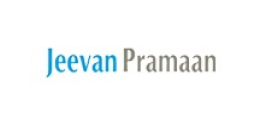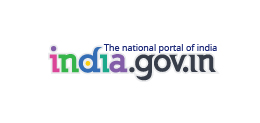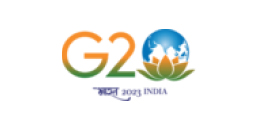Introduction
In 2020, the RNTCP was renamed as the National TB Elimination Program (NTEP) to emphasize the aim of the Government of India to eliminate TB in India by 2025, five years ahead of the global targets of 2030.
The SDG targets with regard to TB (base line 2015) are:
- 80% reduction in incidence
- 90% reduction in mortality
- Zero TB patients and their households face catastrophic costs as a result of TB disease.
The programme has been guided by the National Strategic Plan 2017-2025, and the key programme activities are implemented under 4 strategic pillars – “Detect – Treat – Prevent – Build” (DTPB).
Estimated TB Burden in India (as per Global TB report 2023)India is progressing against the SDG goals at a far greater pace than the global average, with a decline in TB incidence by 16% and in TB deaths by 18% from 2015 to 2022.
- Estimated Incidence: 2.82 million new TB cases in 2022 - 199 cases per 100,000 population
- Estimated mortality: 331,000 deaths in 2022 - 23 deaths per 100,000 population
- Approximately 2% of TB patients estimated to be HIV +ve
- DR-TB (Drug resistant-TB): 2.5% in new cases and 13% in previously treated cases
Scope of services
Objectives of the programme: The Ministry implements the National TB Elimination Programme with the following objectives:
- Early diagnosis of TB patients, prompt treatment with quality-assured drugs and treatment regimens.
- Engaging with the patients seeking care in the private sector.
- Prevention strategies include contact tracing in high-risk/vulnerable populations.
- Airborne infection control.
- Multi-sectoral response for addressing social Determinants
Achievements under Programme
In-country model for TB burden estimation
Utilizing all the available data and with collaborative support from WHO, Central TB Division and experts from India have developed a mathematical model to estimate TB incidence and mortality at national level, a first among nations. This model was developed utilizing all information available in public domain as well as the information from National TB Prevalence Survey 2019-2021 and TB mortality reports as published by RGI in its SRS- Cause of Death reports. The mathematical model has now been further customized to provide the estimates at States & UT levels (2015-2022).
Pradhan Mantri TB Mukt Bharat Abhiyaan (PMTBMBA)
Pradhan Mantri TB Mukt Bharat Abhiyaan was launched by the Honorable President of India on September 9, 2022, with the objectives to provide additional support to TB patients in order to improve treatment outcomes, augment community involvement and leverage Corporate Social Responsibility (CSR) activities. As per the clarion call of the Hon’ble Prime Minister of India, Shri Narendra Modi at Delhi End TB Summit in March 2018 to eliminate TB by 2025, five years ahead of Sustainable Development Goal, PMTBMBA initiative was launched to bring together people from all backgrounds into a ‘Jan Andolan’ and escalate the progress toward TB elimination.
As on 31st July 2024, over 1.6 lakh Nikshay Mitras have been registered and linked to 11.4 lakh TB patients. 11.5 lakh TB patients have consented to receive community support and approximately 18 lakh kits have been distributed (all time period). Among the renowned Ni-kshay Mitras, Hon’ble Governors/Lt. Governors of 26 State/UTs, Hon’ble Union Ministers, Ministers of State, Chief Ministers, State Health Ministers of many State/UTs have come forward to adopt TB patients. Many MLAs & local parishads have also become Ni-kshay Mitras. Around 17 Cabinet Secretariat officials and 23 MoHFW/CTD officials have also adopted TB patients.
Case finding
India notified 24.2 lakh TB cases in 2022 which was higher than the pre-COVID level of 2019. In 2023, a total of 25.5 lakh TB patients have been notified. From 2015 onwards, the efforts to find all cases have resulted in over ~58% increase in TB case notifications. Health facilities in government sectors outside Health Ministry have been involved viz. ESI, Railways, Ports and the ministries of Mines, Steel, coal, etc. with the programme.
With a focused and targeted engagement with the private sector, there has been an increase in private sector notification by more than 7 times over the past 8 years. In 2022 and 2023 from private sector, the country was able to notify 7.33 & 8.44 lakh TB cases (highest ever) respectively accounting for 30% and 33% of total notifications. The programmatic collaborative efforts resulted in 7 times increase in cases reported from the private sector. The innovative private sector models have been global best practices. Moreover, the programme diagnosed 63,939 cases of multidrug-resistant TB (MDR-TB), highlighting the programme’s commitment to addressing drug resistance.
Diagnostic services
The NTEP continued its tradition of providing free diagnostic services, conducting approximately 1.89 crore sputum smear tests and 68.3 lakh nucleic acid amplification tests (NAAT) in 2023. There has been a huge infrastructure scale-up of TB laboratory services. Designated Microscopy Centers (DMCs) have increased by 80% (13583 in 2014 to 24573 in 2023) over the past 9 years. Till 2023, 6496 new molecular diagnostic laboratories and 81 Culture and Drug susceptibility testing laboratories have been established.
Treatment services
Comprehensive care packages and decentralized services have been introduced for TB patients under NTEP, including scale up of shorter oral regimen for DRTB. The programme has emphasized addressing comorbidities such as malnutrition, diabetes, HIV and substance abuse; early assessment of severity of disease and appropriate referral to higher facilities under Differentiated TB care model for improving treatment outcomes. Around 792 Drug resistant TB treatment centers are functional in the country. Over the last 9 years, despite one-third of notifications coming from the private sector, the programme was able to sustain a treatment success rate of above 80%. In 2021, the success rate had reached 84% and in 2022, it marginally increased to 85.5%. In 2023, the success rate increased to 87.6%.
TB preventive services
The programme has made significant efforts to expand TB preventive treatment (TPT). In 2021, a comprehensive guideline for the programmatic management of TPT was released. Strong commitment from various states has shown a unified resolve to prevent the emergence of TB disease in vulnerable populations.
Patient Support Systems
Undernutrition is an important risk factor for TB. Under NTEP, the government provides free diagnostics and quality assured drugs along with financial assistance of ₹ 500 per month during the course of treatment for all TB patients in the country. The Government introduced a scheme of Nikshay Poshan Yojana (NPY) in April 2018 for providing Rs 500/month as DBT to support the nutrition of TB patients for the entire duration of treatment. Cumulatively, till 2023, NTEP has disbursed Rs 2781 crores to ~1 crore beneficiaries.
New initiatives including incentivizing treatment supporters and ASHA (Accredited Social Health Activist) workers, TB Vijeta’s (TB champions) and Ni-kshay SAATHI (Family caregiver model) were aimed to further enhance patient support systems.
Active Case Finding
For reaching out to missing TB patients, the Government has begun systematic active TB case finding in high-risk groups. The programme has proactively conducted house-to-house searches of TB cases among these vulnerable populations. This includes people living with HIV, diabetics, undernourished, residential institutes like prisons, asylums, old age homes, orphanages, tribal areas, and marginalized populations. This activity has resulted in the diagnosis of an additional ~3 lakh TB cases since its inception.
Medical College Task Force Mechanism
Around 560 out of 645 medical colleges are currently collaborating with NTEP by establishing TB detection and treatment centres, DR-TB Centre and C&DST laboratories. Medical Colleges have an important role not only in preventive, curative, or academic fields but also in research and advocacy. To strengthen the coordinated efforts by the individual medical colleges/institutions, the Medical College Task Force Mechanism comprising of National Task Force (NTF), Zonal Task Force (ZTF) and State Task Force (STF) for NTEP have been established. The task force at each level meets regularly to review the activities and performance in the clinical, training, and research initiatives under NTEP.
Sub National disease-free certification
To monitor the trends of the TB Epidemic at the State/UTs/District level, the ministry has introduced a novel initiative of estimating disease burden through a methodology of community-level survey (Inverse sampling methodology) and tracking drug sales data in the private sector and measuring the level of under-reporting to the programme. Through this methodology, State/UTs/District level estimates of TB disease are derived and measured against the baseline of 2015.
Advocacy, Communication and Social Mobilization
Advocacy, communication, social mobilization, and community engagement have remained integral to the NTEP's efforts, strengthening the program's foundation and encouraging community involvement in TB elimination initiatives. A “Guidance Document on Community Engagement” has been developed to guide the States/ UTs in planning, designing, and monitoring the activities under community engagement. A certificate course titled “Self-learning course for TB Champions” has been developed and hosted on multiple e-platforms to empower TB survivors with the basic knowledge on TB and the provision of various services offered by the NTEP so that they can support patients on treatment.
Partnerships
Several partners and stakeholders have come together for India’s fight to eliminate TB, bringing numerous innovative approaches and diverse strategies. The programme has established Technical Support Units at National and state levels to strengthen partnerships. A multisectoral approach was adopted to ensure meaningful engagement of key stakeholders, including government agencies, industries and non-governmental organizations (NGOs).








